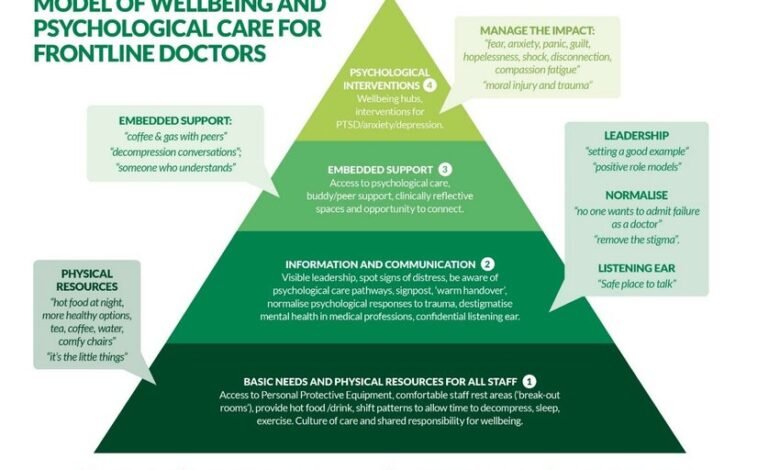Psychological Services: Essential Support for Mental Health and Well-Being

Psychological services play a crucial role in promoting mental well-being and addressing various psychological challenges. These services encompass a range of offerings, including therapy, counseling, assessments, and support for individuals dealing with stress, anxiety, depression, and more. Accessing psychological services can provide the necessary tools and strategies to cope with life’s difficulties and improve overall mental health.
Many people may hesitate to seek help due to stigma or misconceptions about therapy. Understanding the benefits of such services can empower individuals to take that essential step toward healing and personal growth. Professional support is tailored to meet the unique needs of each person, fostering a safe space for exploration and recovery.
In a fast-paced world where mental health often takes a backseat, the availability of psychological services is more important than ever. By exploring this topic further, readers can gain insights into what these services entail and how they can significantly impact one’s quality of life.
Fundamentals of Psychological Services
Psychological services encompass a range of support mechanisms aimed at improving mental health. These services are essential for diagnosing, treating, and managing various psychological conditions.
Scope of Services
Psychological services cover multiple areas, including assessment, diagnosis, and therapy. Professionals conduct evaluations using standardized tests and interviews to identify mental health issues.
Therapeutic options include individual counseling, group therapy, and family therapy. They aim to improve emotional well-being and coping strategies. Additionally, specialized programs may focus on specific populations, such as children, adolescents, or elderly individuals.
Crisis intervention services are also available, addressing urgent mental health needs. Through these various offerings, psychological services help individuals navigate their challenges and foster resilience.
Common Psychological Disorders
Psychological disorders are varied and can significantly impact daily functioning. Common disorders include anxiety disorders, depression, and bipolar disorder.
Anxiety disorders often manifest as excessive worry and fear, affecting a person’s ability to function normally. Symptoms may include restlessness, fatigue, and difficulty concentrating.
Depression is marked by persistent sadness and a lack of interest in previously enjoyed activities. Symptoms can be debilitating and may include changes in appetite, sleep disturbances, and feelings of worthlessness.
Bipolar disorder involves extreme mood swings, from manic highs to depressive lows. Proper diagnoses and treatment are crucial for managing these disorders effectively.
Evidence-Based Approaches
Evidence-based approaches in psychological services emphasize treatment methods supported by empirical research. Cognitive Behavioral Therapy (CBT) is a widely recognized method that focuses on identifying and changing negative thought patterns.
Another approach is Dialectical Behavior Therapy (DBT), particularly useful for individuals with borderline personality disorder. DBT combines cognitive-behavioral techniques with mindfulness strategies.
Medication management may be incorporated alongside therapy, guided by healthcare professionals. This integrated approach ensures a comprehensive treatment plan tailored to individual needs, optimizing outcomes for those seeking psychological support.
Accessing Psychological Services
Accessing psychological services involves navigating complex health care systems, understanding insurance and costs, and finding qualified professionals. Each of these aspects plays a crucial role in ensuring individuals receive the support they need.
Navigating Health Care Systems
Health care systems can be intricate and difficult to navigate. Patients should first identify the type of care they need—this may include therapy, counseling, or psychiatric services.
Key resources include:
- Primary Care Physicians: They can provide referrals.
- Community Mental Health Centers: These offer various services based on need.
- Online Directories: Websites such as Psychology Today or therapists’ networks can help find nearby services.
It’s essential to verify that a service fits personal needs and preferences, including location and treatment approach.
Insurance and Cost-Related Concerns
Insurance can significantly impact access to psychological services. Individuals should review their insurance policy for specific mental health benefits.
Important considerations include:
- In-Network vs. Out-of-Network: In-network providers typically cost less.
- Copayments and Deductibles: Understanding these terms helps assess potential out-of-pocket costs.
- Medicaid and Medicare: These programs offer options for those who qualify.
Seeking clarifications from the insurance provider can prevent unexpected expenses.
Finding a Qualified Psychologist
Finding a qualified psychologist involves researching credentials and areas of expertise. Checking qualifications, such as licensure and certifications, is a primary step.
Ways to find psychologists include:
- Referrals from Friends or Family: Personal recommendations can provide trustworthy options.
- Professional Organizations: Resources like the American Psychological Association (APA) offer searchable databases.
- Consult Initial Sessions: Meeting with a psychologist can help determine compatibility and approach.
Assessing factors such as experience in specific issues, therapeutic style, and availability is crucial in making a well-informed choice.


